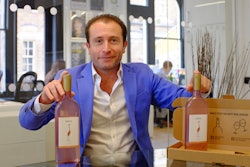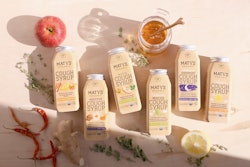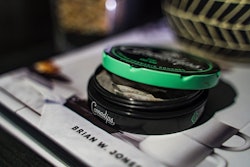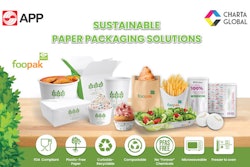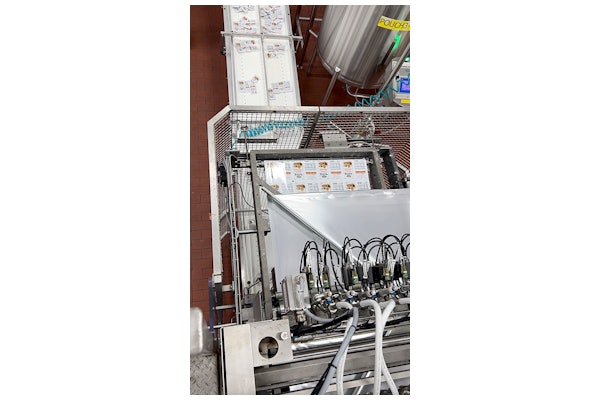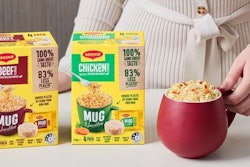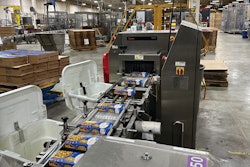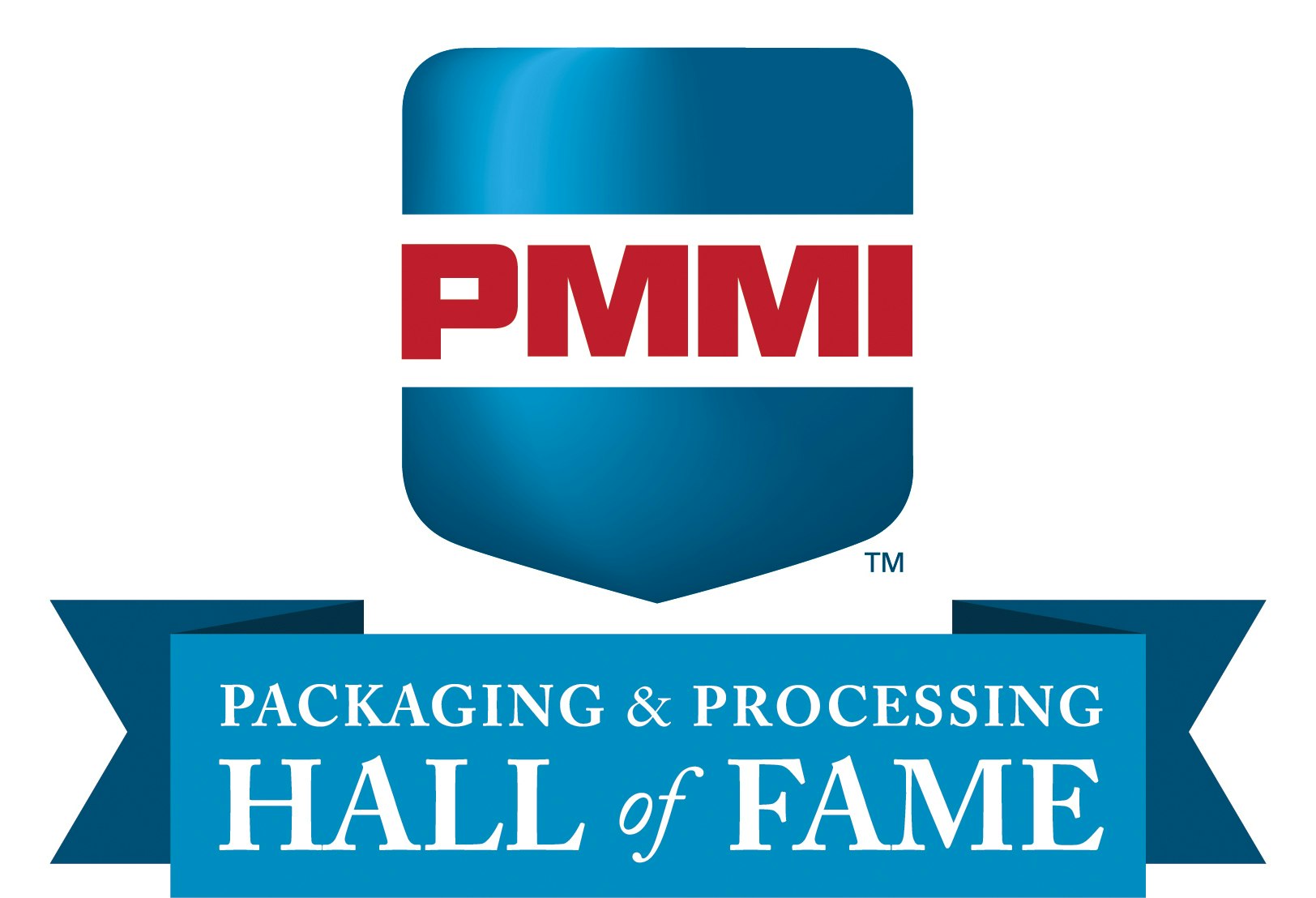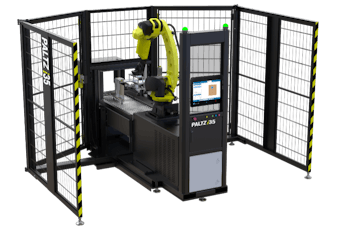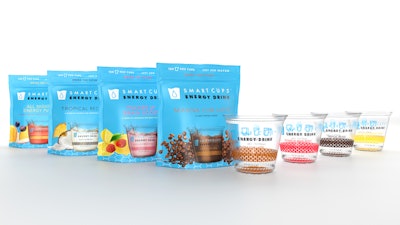
Imagine if you could replace a 10-pack of 9-oz bottled or canned energy beverages with a lightweight flexible pouch containing the equivalent amount of product. Sound fantastic? Well now it’s possible, with the new Smart Cups line of four energy drinks that feature microencapsulated ingredients printed on the bottom of a disposable plastic cup. A joint development between Mission Viejo, CA-based Smart Cups and The Additive Advantage of North Reading, MA, the proprietary 3D polycapsule printing delivery system technology transforms a virtually empty vessel into a self-stirring energy drink through the addition of water (watch video).
Smart Cups Technology™ was conceptualized by entrepreneur and chemist Chris Kanik, now CEO of the company, who first explored how printed technology could be applied to the beverage industry to create instant drinks. Kanik then partnered with Sal Celeste, CEO of The Additive Advantage, who is described by Kanik as “a leading voice for microencapsulation research and technology since 1992.”
“Together we combined our out-of-the-box thinking to invent and commercialize a complete, precisely measured delivery system where the printed microcapsules containing the active and flavor materials are activated by adding water,” Kanik says.
As The Additive Advantage explains, traditional microencapsulation packages solids, liquids, or gaseous materials within a polymer shell, forming small particles called microcapsules. These shells, which protect the actives in the core, dissolve through a specific stimulus, releasing their content at a targeted time and place. “Whereas microcapsules protect the actives, The Additive Advantage’s patented Integrated Delivery Platform (IDP) technology both protects the microcapsules as well as affixes them to substrates through a proprietary printing process.”
The polymer binder used for the Smart Cup is plant-based and amphiphilic, meaning it is both repellent and absorbent to moisture. This allows Smart Cups to protect the microencapsulated ingredients, yet release them upon contact with liquid. The ingredients at the bottom of each cup are called the Katalyxt™. When the Katalyxt comes in contact with water, the microcapsules dissolve, creating a convective disturbance in the liquid, as effervescent bubbles pass through and rise to the surface—thus the “self-stirring” description. Says Kanik, “Think of our proprietary self-stirring technology as a million car accidents colliding with one another at the same time upon contact with water, which facilitates the thorough mixing of ingredients.”
Smart Cups introduced its line of energy drinks—Magna Cum Latte, Nerdy Lemon T, Pucker Up Brain Boost, and Tropical Recess—in early December 2017, for sale on its website. Each variety includes its own mix of printed ingredients. For example, Tropical Recess includes natural pineapple, coconut, lemon and lime flavors, citric acid, caffeine, Vitamins B3, B5, B6, and B12, and natural color, among other ingredients.
While Smart Cups was envisioned as a solution for an instant, portable drink, Kanik was also driven by the idea of eco-friendliness. Being stackable, the cups require less storage space in the home and reduce the cost and associated energy requirements of shipping, resulting in a lower carbon footprint. “Smart Cups can deliver more than 10 times the quantity of product than an equal number of traditional bottles or cans,” explains Kanik.
Aware that consumers are more conscious than ever before of packaging waste from single-use containers, Kanik also opted for the use of a 100% plant-based, biodegradable cup from Fabri-Kal. While Kanik did not specify the details of the cup, Fabri-Kal does offer the Greenware® line of disposable foodservice packaging made from NatureWork’s Ingeo PLA. Although Kanik chose a plant-based plastic, the microencapsulated ingredients can be printed on almost any surface, he says.
Smart Cups’ energy beverages are packaged in a flexible pouch in five- and 10-ct quantities. One extra cup, or “Dumb Cup,” can be found in the five-count pouch, and two extra in the 10 count, to protect the Katalyxt from moisture. Kanik says Smart Cups chose the UV- and moisture-resistant pouch “to ensure the best possible quality to the end consumer”; however, the company continues to evaluate other packaging options, such as a tubular package that would make the product more portable.
The company also plans to introduce additional beverage lines, including sports drinks, coffees, teas, juices, protein drinks, and more. All Smart Cup beverages are manufactured in-house, with research and development support from The Additive Advantage. Kanik says that in the future, Smart Cups may manufacture products for other brands or license the technology.
